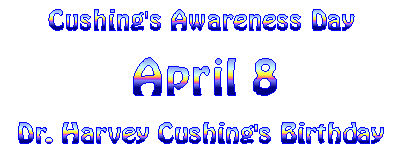Research suggests that chronic adrenal insufficiency, more commonly known as Addison's disease, may be responsible for psychiatric symptoms in those who suffer with it. Unfortunately, these symptoms are poorly understood and inadequately studied. In one case, a 41-year-old construction worker was admitted to a psychiatric clinic complaining of depression. He had trouble sleeping and concentrating and had lost 6 pounds due to a loss of appetite. He was placed on 20mg of fluoxetine but returned 2 weeks later complaining that the therapy did not work, and even reported hallucinating his ex-wife, who had recently died in a car accident. He returned again later 4 months later and was found to have a weak pulse, major hypotension, and hyponatremia and hyperkalemia. It was at this point that he was diagnosed with Addison's disease.
The disease was first described by Thomas Addison in the mddle of the 19th century. It involves inadequate secretion from the adrenal glands, leading to lower secretion of glucocorticoids. Its usual symptom pigmentation involves fatigue, weight loss, nausea, vomiting, weakness and abdominal pain. Among its psychiatric symptoms are psychosis and delirium.
"An array of neuropsychiatric symptoms is associated with AD. Addison is quoted as saying in 1855 that AD patients might present with “attacks of giddiness, anxiety in the face, and delirium.”1 Anglin et al1 also noted four case series published in the 1940s and 1950s that found the prevalence of neuropsychiatric symptoms in AD to be between 64 and 84 percent. Iwata et al6 reported that in some cases, the neuropsychiatric symptoms were the initial and sole presentation of AD, even though such symptoms are more common in the late course of the disease; this might lead to a patient initially being misdiagnosed, as it did in our case, and in turn, incorrectly treated. Neuropsychiatric symptoms of AD include, but are not limited to, depression, lack of energy, and sleep disturbances. During an Addisonian crisis, agitation, delirium, and, in some cases, visual and auditory hallucinations are reported.1 According to Smart,7 neuropsychiatric symptoms might also be the first presentation of an Addisonian crisis, especially in a patient who was previously symptom free while under therapy."It is not clear exactly why these neuropsychiatric symptoms appear. It is possible that electrolytic and metabolic disturbances could produce these symptoms, and hyponatremia, which is its central expression, can result in brain damage. Other researchers believe that the neuropsychiatric symptoms are the effects of glucocorticoid abnormalities on the brain. Some researchers believe that unusually low amounts of the substance could produce hallucinations. In one report, Addison's disease presented as a psychotic break:
"A Caucasian 63-year-old man presented a five-month history of progressive depressive symptoms with sadness, anhedonia, asthenia, hyporexia, insomnia, limb weakness, and psychotic symptoms. He was a former heavy smoker and had been diagnosed with chronic occupational lung disease (silicosis). After a specialized psychiatric consultation, the patient started taking fluoxetine, risperidone, and nitrazepam. After a short period of time, the patient withdrew his medication by his own because of worsening of the limb weakness. The patient became severely paranoid with persecutory beliefs, delusions, an infantile speech, progressive social isolation, fear of leaving his home, periods of mental confusion and disorientation, and sporadic nausea and vomits. A few days before hospital admission, the patient almost stopped fluid intake and evolved with syncope."From http://www.examiner.com/article/addison-s-disease-may-cause-psychosis-say-researchers


